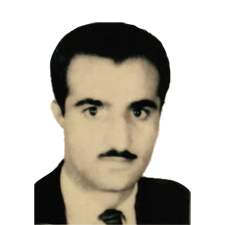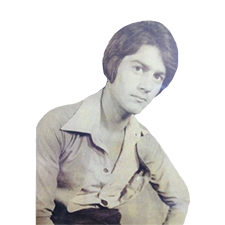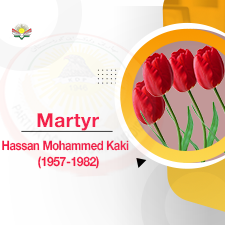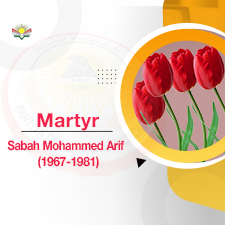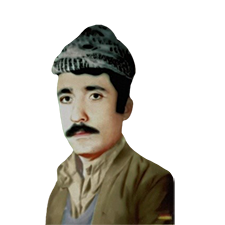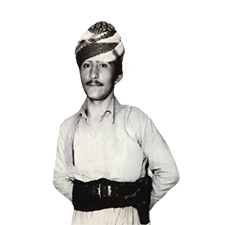Younis Ali Latif Allah Qadir, also known as Arif Younis, was born in 1945 in “Balkha village”, situated in the Biara district of the Hawraman region. He resided in the village and worked as a gardener and carpenter, while also receiving primary education. Due to circumstances, Younis Ali was compelled to serve in the military and underwent artillery training, earning the rank of Arif artillery. Following the collapse of the September Revolution, he sought refuge in Iran and settled in Ahvaz province. He was married and blessed with three sons and four daughters, namely Ghalib, Taleb, Abbas, Gul Bahar, Samira, Sabaha, and Warda.
In 1972, he joined the Kurdistan Democratic Party (KDP) leadership battalion as a Peshmerga, with their headquarters located in Haji Omeran and Badinan regions. Given his expertise in heavy weaponry, he served in the artillery department of the battalion. As the war resumed in 1974, he was promoted to the position of artillery chief within his battalion. In 1979, he returned to Iran as a Peshmerga in the Mohammad Ramazan Battalion of the Hawramabad Forces, affiliated with the Kurdistan Democratic Party (KDP). Younis Ali was appointed as the commander of the battalion's guerrilla detachment.
In 1981, Younis Ali embarked on a guerrilla mission alongside two comrades, namely Hama Zamaqi and Abid Rahim. Their destination was the Sharazoor plain, where they intended to carry out their activities. As night fell, they sought refuge in the village of Kheli Hama within the Sharazoor plain. However, at daybreak, their peaceful slumber was disrupted by the arrival of a formidable force comprising Ba'ath regime soldiers and jashes, who swiftly surrounded the village. The soldiers demanded their surrender, but the three Peshmerga detachments defiantly chose to confront them instead. Tragically, after a few hours of intense battle, Hama Zamaqi fell as a martyr, leaving a void in their ranks. Younis Ali and Abid Rahim found themselves encircled and eventually captured, sustaining injuries in the process. They were subsequently transported to Mosul prison, where their fate remains unknown. Younis Ali, a martyr whose final resting place remains a mystery, is forever remembered as one of the fallen heroes.




